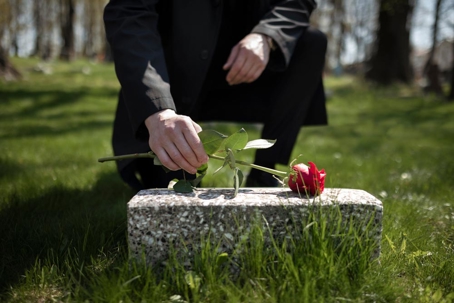The sudden loss of a loved one is devastating under any circumstances, but when that loss occurs because of another party’s negligence or misconduct, the aftermath can involve more than grief—it can raise legal questions. In Louisiana, wrongful death claims allow certain family members to pursue financial recovery for losses resulting from a death that could have been prevented.
A wrongful death claim is a civil legal action brought when an individual dies due to the fault of another person or entity. These claims may arise from a range of incidents, including vehicle collisions, workplace accidents, industrial mishaps, medical negligence, and defective products. The goal of the legal process is to compensate the surviving family for financial and emotional losses stemming from the death.
Louisiana law defines wrongful death and outlines who may file a claim. Under Louisiana Civil Code Article 2315.2, the order of eligibility begins with the surviving spouse and children of the deceased. If there are none, the right to file passes to surviving parents, then to siblings, and finally to grandparents. Friends, extended family, and unrelated caregivers do not have standing under the law, even if the emotional bond was significant.
This legal structure aims to protect close family members from the financial and personal consequences of an unexpected death. Damages recoverable through a wrongful death claim may include funeral and burial costs, medical expenses incurred prior to death, loss of the deceased’s financial contributions, and non-economic losses such as grief, mental anguish, and loss of companionship.
In workplace-related fatalities, wrongful death claims can become more complex. Louisiana’s workers’ compensation laws typically provide predetermined death benefits to surviving dependents. These benefits are available regardless of fault but are limited in scope. Workers’ compensation generally shields employers from being sued directly for negligence when an employee is killed on the job.
However, there are exceptions. If a third party played a role in the incident—such as a contractor, equipment manufacturer, or negligent property owner—a separate wrongful death claim may be brought against that party. These third-party claims may proceed alongside the workers’ compensation process and allow for recovery of damages not covered by the workers’ compensation system, such as pain and suffering.
Proper evaluation of a wrongful death case involving a workplace incident requires a careful review of liability, insurance coverage, and the roles of multiple parties. In industrial environments or construction sites, for example, numerous contractors and subcontractors may share responsibility for safety. Identifying which entity, if any, failed to meet a legal duty of care is a key part of the legal analysis.
The timeline for filing a wrongful death claim in Louisiana is strictly limited. The state imposes a one-year prescriptive period, which begins on the date of the individual’s death. This means that surviving family members must file their claim within one year or risk having the case dismissed permanently. There are few exceptions to this rule, so timely legal consultation is critical.
The civil nature of a wrongful death claim is distinct from any criminal proceedings that may arise from the same incident. A civil claim does not require a criminal conviction, and a family may pursue compensation regardless of whether the state files or succeeds with criminal charges. While criminal cases focus on punishment, civil claims seek financial recovery for the loss suffered by the survivors.
In addition to wrongful death, Louisiana law also permits a survival action. This type of claim allows family members to recover damages the deceased person could have claimed had they survived the injury. Survival actions cover losses such as medical bills, lost wages between the time of injury and death, and the deceased’s pain and suffering. Survival claims are typically filed in conjunction with wrongful death claims, but they are legally distinct.
Wrongful death litigation often requires gathering and preserving a range of evidence, including medical records, accident reports, witness statements, employment records, and, in some cases, video footage or expert evaluations. This process helps establish the factual basis for liability and quantifies the losses experienced by the family.
In workplace incidents, additional documentation may be needed, such as safety inspection records, OSHA reports, training logs, and maintenance records for any machinery involved. Testimony from co-workers and supervisors can also provide context and insight into the conditions that led to the fatal incident.
Families dealing with the sudden death of a loved one often face pressure from insurance companies or employers to accept quick settlements. While these offers may appear helpful in a time of need, they often fall short of covering long-term financial needs or fully addressing the legal responsibility for the death. A thorough legal review ensures that all damages are considered and that the family’s rights are preserved.
The emotional and financial impact of wrongful death is significant. Louisiana law provides a clear path for families to pursue justice, but that path requires careful navigation, especially when workplace injuries or third-party liability are involved.
Wrongful death claims are not about placing blame for its own sake—they are about accountability, closure, and ensuring that preventable tragedies are addressed through the civil justice system. For those left behind, understanding the law is the first step in protecting the future.
The post Wrongful Death Claims in Louisiana: What Families Need to Know appeared first on John Michael Morrow Law Firm.

